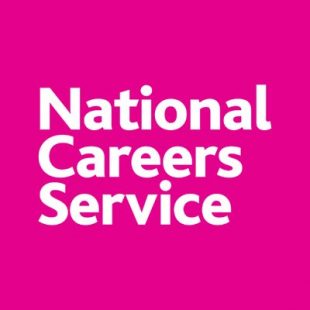Just like the apprenticeship service, the NCS has adopted a #DigitalFirst approach

Why is a careers service Digital First?
The mission statement for the National Careers Service is rather like a Ronseal varnish strapline: it might not be beautiful but it says what it does in the tin.
But it is worth reflecting that what the National Careers Service does is at the very heart of two of the government’s most pressing priorities: economic growth and social mobility.
First and foremost, the service helps people that need to get on to understand what employers want from them. Additionally, as people pursue their own aspirations, learn new skills, and become more employable and valuable to employers, they are ready to help business to thrive too.
But what is digital about that?
The National Careers Service has a programme to establish it as a digital first programme. Why would it do that, and what does it even mean?
Most people’s expectation of careers advice is that it is inevitably about people advising other people, not a process about engaging with a computer. And in an important sense that is true. The National Careers Service dedicates its most intensive services with professional face to face careers advice to those people who have the very greatest needs.
At the same time, every good quality careers intervention is fundamentally user led and responds to user needs. And there are a variety of aspects that will be familiar to colleagues working to build digital services.
The National Careers Service is designed to find and realise the customer’s goals. A good quality careers intervention is about exploring what the customer wants, identifying what the customer already has in terms of skills, attitudes, experience and abilities, and helping the customer plan a route from where they are now to where they want to be. It is about helping the customer to realise what they want, even when they don’t know yet quite what that is.
And the National Careers Service does deliver good quality careers interventions. It employs only professionally qualified careers advisers and every one of the suppliers of careers advice contracted by the service is Ofsted graded as Good or Outstanding. 93% of our customers our satisfied with our service believing that they have had advice that is relevant to them and that they have a plan about what they should do next.
But while the nature of careers advice is that it is very user focused, that doesn’t mean that there is no consistent customer journey leading to well defined outcomes. There is a logical progression from identifying the need to make a change through to establishing a plan and making progression. Careers advisers help customers to explore this journey and take sequential steps towards taking control of their lives.
What we also know is that there are lots of people that need careers advice who are well motivated and capable of researching and exploring their needs and options themselves.
The Digital First programme is working to bring the careers customer journey to everyone through clear intuitive tools that can help them consider their skills and abilities, explore their future options and build a plan to augment their current skills to realise their ambitions for the future.
So,
- it comes naturally to the National Careers Service to design services that seek to research, understand and meet customer needs.
- it is fundamental to the National Careers Service to reiterate information to customers in ways that they can understand and test that this works with users.
- it is a core function of the National Careers Service to ensure that customers progress on a journey towards more skills and work.
- it is entirely normal for careers services to be based on a collaboration between customer and supplier to determine the how the service can best meet the needs of the customer.
With these features and an ambition to bring careers support to a universal audience, the National Careers Service has a clear plan to be a Digital First service.
Joe Billington, director of the National Careers Service (NCS)
First published for ESFA here on 14th Feb.











Responses